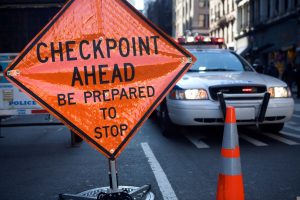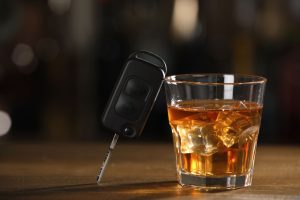DUI checkpoints are a regular occurrence throughout Broward County, especially during holidays and major events. As a Fort Lauderdale DUI lawyer can explain, these strategically placed roadblocks allow law enforcement to briefly stop and evaluate drivers for signs of impairment. While these checkpoints serve a legitimate public safety purpose, many drivers don’t understand how these differ from regular traffic stops or what rights they maintain when encountering one.
How DUI Checkpoints Differ from Standard Traffic Stops
In a typical Broward County DUI arrest scenario, an officer must have “reasonable suspicion” to pull you over. This might include observing erratic driving, speeding, or equipment violations. Once stopped, the officer can investigate further if they develop probable cause to believe you’re impaired.
DUI checkpoints operate differently. At checkpoints, law enforcement can stop every vehicle (or every nth vehicle according to a predetermined formula) without specific suspicion of wrongdoing. This presents a significant constitutional exception to the Fourth Amendment’s protection against unreasonable searches and seizures.
Legal Foundation for DUI Checkpoints
The Florida Supreme Court established the legality of sobriety checkpoints in the 1986 decision in State v. Jones, determining that properly conducted checkpoints do not violate Florida’s Constitution. The U.S. Supreme Court similarly upheld their constitutionality in the 1990 ruling in Michigan Department of State Police v. Sitz, finding that the state’s interest in preventing drunk driving outweighed the minimal intrusion on individual rights.
However, for a checkpoint to be legal in Florida, it must adhere to strict guidelines:
- The checkpoint must be authorized by supervisory personnel following a written operational plan.
- Officers cannot have unfettered discretion in stopping vehicles.
- The checkpoint must be clearly identified as a sobriety checkpoint.
- Motorists must receive adequate advance notice.
- The location must be reasonable.
- The detention time must be minimal.
- The roadblock must be conducted safely.
Checkpoints that fail to meet these requirements may be deemed unconstitutional, potentially invalidating any resulting arrests. An experienced criminal defense lawyer can analyze the facts of your case to help make that determination.
Your Rights at a Broward County DUI Checkpoint
When approaching a checkpoint in Fort Lauderdale or elsewhere in Broward County, you should be aware of your rights:
- You must stop at the checkpoint. Attempting to avoid a checkpoint by making an illegal U-turn or other evasive action can provide officers with reasonable suspicion to stop you separately.
- You must provide license and registration. Florida Statute §322.15 requires drivers to present their license, registration, and proof of insurance when requested by law enforcement.
- You can remain silent. Beyond providing identifying documents, you have the right to decline answering questions about where you’re coming from, where you’re going, or whether you’ve been drinking. Simply inform the officer politely that you’re exercising your right to remain silent.
- You can decline field sobriety tests. These tests are voluntary, and you can refuse them without penalty. However, be aware that refusal may lead officers to develop probable cause for arrest based on other factors like odor of alcohol, slurred speech, or bloodshot eyes.
- Chemical tests are different. Under Florida’s “implied consent” law (F.S. §316.1932), refusing a breath, blood, or urine test after arrest can result in an automatic one-year license suspension (18 months for a second refusal). This refusal can also be used against you in court.
The Checkpoint Process in Broward County
Broward County law enforcement agencies, including the Fort Lauderdale Police Department and Broward Sheriff’s Office, typically conduct checkpoints at high-traffic locations during evening hours. Officers may:
- Request your license and registration.
- Engage you in brief conversation to observe signs of impairment.
- Look for visible open containers or drug paraphernalia.
- Request field sobriety tests if they suspect impairment.
- Conduct breath tests if probable cause is established.
How a Local Fort Lauderdale Attorney Can Help
If you’re arrested at a DUI checkpoint in Broward County, securing representation from a local criminal defense attorney offers significant advantages:
- Checkpoint compliance review: A Fort Lauderdale DUI defense lawyer can investigate whether the checkpoint followed all legal requirements. Any procedural failures could lead to evidence suppression or case dismissal.
- Evidence examination: Your attorney can scrutinize field sobriety test administration, breathalyzer calibration records, and officer training certifications for potential weaknesses in the prosecution’s case.
- Local court relationships: An established Fort Lauderdale criminal defense attorney understands the tendencies of local judges and prosecutors, allowing for more effective negotiation strategies.
- Alternative resolution programs: Broward County offers several diversion programs for first-time offenders. A local defense attorney can help determine your eligibility for these programs, potentially minimizing consequences.
- License suspension hearings: Your defense lawyer can represent you at DMV administrative hearings to contest license suspensions, which must be requested within 10 days of arrest.
Potential Penalties for Broward County DUI
DUI penalties in Florida escalate with each offense:
- First offense: Up to 6 months imprisonment, $500-$1,000 fine, 6-12 month license suspension
- Second offense: Up to 9 months imprisonment, $1,000-$2,000 fine, minimum 5-year license suspension for offenses within 5 years of previous conviction
- Third offense: Up to 12 months imprisonment, $2,000-$5,000 fine, minimum 10-year license suspension for offenses within 10 years
Additionally, Broward County judges typically impose probation, community service, DUI school, vehicle impoundment, and potential ignition interlock device requirements.
Hire a DUI Defense Attorney
DUI checkpoints represent a significant tool in law enforcement’s efforts to combat impaired driving in Broward County. Understanding your rights at these checkpoints is crucial, but so is recognizing the severe consequences of driving under the influence.
If you’ve been arrested at a checkpoint, contact an experienced Fort Lauderdale DUI defense attorney immediately. With knowledge of local procedures, relationships with court personnel, and expertise in Florida DUI law, a skilled attorney can make a substantial difference in the outcome of your case.
Remember: the best way to avoid a DUI arrest is never to drive impaired. With rideshare services widely available throughout Broward County, there’s never a reason to risk your freedom, finances, and the safety of others by driving under the influence.
Call Fort Lauderdale Criminal Defense Attorney Richard Ansara at (954) 761-4011. Serving Broward County.
Additional Resources:
Publicized Sobriety Checkpoints, NHTSA
More Blog Entries:
DUI With a Minor in the Car: Why Fort Lauderdale Prosecutors Take These Cases So Seriously, Feb. 13, 2025, Fort Lauderdale DUI Defense Lawyer Blog
 Fort Lauderdale Criminal Attorney Blog
Fort Lauderdale Criminal Attorney Blog


